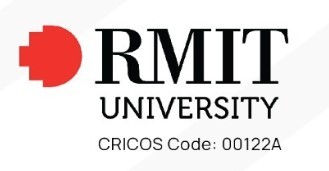
Bachelor of Engineering (Adv Manufacturing and Mechatronics)


Overview
Duration
FULL-TIME 4 YEARS
FULL-TIME 4 YEARS
Scholarship
YES
YES
Fee
AU$43,200
AU$43,200
Intake
FEBRUARY, JUL
FEBRUARY, JUL
Overview
- Are you ready for an exciting career that lets you design, build and implement smart mechatronic systems which can be deployed within a wide range of engineering companies?
- In RMIT's Bachelor of Engineering (Advanced Manufacturing and Mechatronics) (Honours) degree, you’ll learn about mechatronics, robotics, advanced materials, automated systems, and the simulation and modelling of manufacturing processes.
- As automation replaces people in various industry sectors, engineers with experience in robotics and mechatronics will be highly sought after.
- This professionally accredited degree will prepare you to work in a wide range of industries and as a graduate, you'll demonstrate skills across mathematics, engineering, mechatronics, design and creativity. You'll also be able to communicate your ideas to others and continue to learn as a professional engineer.
- Your studies will include areas such as electrical and electronic system design, machine intelligence and robotics, computer programming and advanced materials. The emphasis is placed on the need to view a manufacturing system as being made up of people, machines and information.
- A feature of this degree is the access you'll have to state-of-the-art facilities, such as the Advanced Manufacturing Precinct which combines RMIT's expertise in technology and design innovation.
Inquire Now
Career
- As a graduate of this degree, you will be highly qualified to design and implement state-of-the-art manufacturing and automation systems.
- Opportunities for advanced manufacturing and mechatronics engineers are as diverse as the manufacturing industry itself.
- Areas of employment are broad and may include the automotive and aerospace industries, the food and beverage industry and engineering and management consultancies.
- Upon graduation, you may take on roles including:
- Product design engineer
- Process engineer
- Engineering specialist
- Facilities manager
- Production manager
- Quality engineer
- Automation specialist.
- RMIT graduates have gone on to have successful careers at a range of organisations including:
- ABB
- Festo
- Toyota
- Cadbury
- National Instruments
- SAGE
- Ford
- Bosch Australia.
Entry Requirement
- To study this course you will need to complete one of the following English proficiency tests:
- IELTS (Academic): minimum overall band of 6.5 (with no individual band below 6.0)
- TOEFL (Internet Based Test - IBT): minimum overall score of 79 (with minimum of 13 in Reading, 12 in Listening, 18 in Speaking and 21 in Writing)
- Pearson Test of English (Academic) (PTE (A)): minimum score of 58 (with no communication band less than 50)
- Cambridge English: Advanced (CAE): minimum of 176 with no less than 169 in any component.
Popular Courses
Start your journey with landmark today!
Find your perfect course
Answer a few questions and
our course matcher will do the rest
Head Office
Level 5, IT Plaza
Kamaladi, Kathmandu
Tel: +977 14542781, 9845566225
E-mail: info@landmarkedu.com
Kamaladi, Kathmandu
Tel: +977 14542781, 9845566225
E-mail: info@landmarkedu.com
Sydney office
Suite 1 Level 1,
46 Macquarie Street,
Parramatta, NSW
Tel: +61 415 122 814
46 Macquarie Street,
Parramatta, NSW
Tel: +61 415 122 814
Branch office
Sahidchowk, Chitwan
Tel: 056-590825
Tel: 056-590825
Mahendrachowk, Biratnagar
Tel: 021-590828
Tel: 021-590828
Level 2, Milanchowk, Butwal, Rupandehi
Tel: 977-71-591694
Tel: 977-71-591694
© Landmark Education. All rights reserved.


